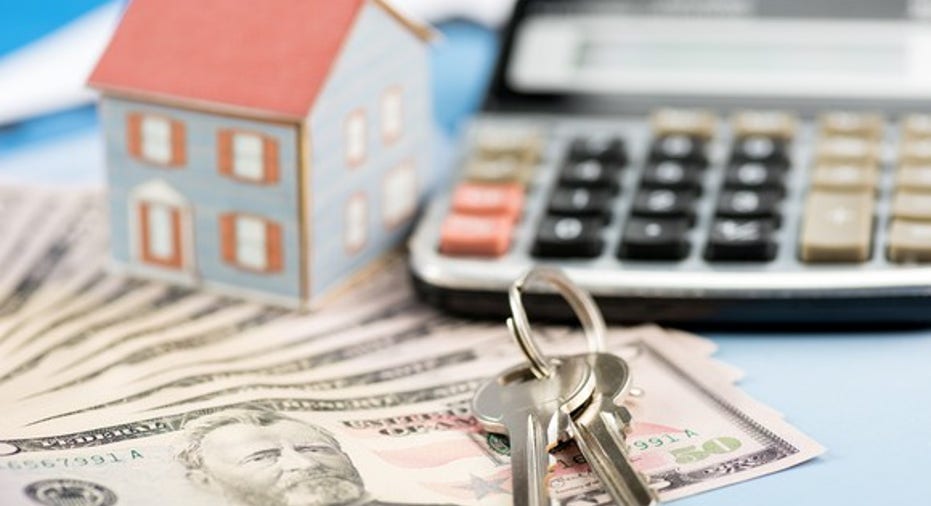Is a Bi-Weekly Mortgage Payment Plan Right for You?

A bi-weekly mortgage payment plan can save you tens of thousands of dollars in interest, and can help you pay off your home loan faster. However, it's not the smartest move for everyone. Here's how much you could save by making bi-weekly payments, and some things you need to consider before committing to a bi-weekly payment schedule.
What is a bi-weekly mortgage payment plan, and how does it save you money?
As the name implies, a bi-weekly mortgage payment plan involves paying your mortgage every two weeks, instead of monthly. Specifically, you pay half of your standard monthly payment amount every other week -- so if your mortgage payment is normally $1,000 per month, you would pay $500 in two-week intervals.
Image source: Getty Images.
The effect of doing this is that you'll end up making an extra mortgage payment each year, which will be applied to your principal balance. There are approximately 52 weeks in a year, which translates to 26 bi-weekly mortgage payments. Since every two bi-weekly payments are equal to one of your monthly payments, this means that you're making 13 of your required monthly payments per year, not just 12.
Over time, this can have a dramatic effect. In my previous example of a $1,000 mortgage payment, that would be an additional $1,000 of mortgage principal on which you'll never have to pay interest again. The compound effect of this can result in significant interest savings, and can allow you to own your home free and clear several years earlier.
How much could you save?
If you currently have a mortgage that you pay monthly, or are planning to obtain a new mortgage in the near future, here's a handy calculator that can show you the difference a bi-weekly payment plan could make for you.
* Calculator is for estimation purposes only, and is not financial planning or advice. As with any tool, it is only as accurate as the assumptions it makes and the data it has, and should not be relied on as a substitute for a financial advisor or a tax professional.
As an example, let's say that you get a $200,000, 30-year mortgage at 4.5% interest. Paying every two weeks instead of once per month would result in your loan being paid off after 25.6 years -- more than four years early. Even better, you would save more than $28,000 in interest along the way.
How to set up a bi-weekly payment plan
If you already have a mortgage, you've probably received letters from third-party companies offering to set up a bi-weekly mortgage payment plan for you -- for a fee, of course.
To be clear, under no circumstances should you pay to set up a bi-weekly mortgage payment plan.
The easiest way, if it's available to you, is that many lenders will allow you to set up automatic bi-weekly mortgage payments on their website, for free. From personal experience, although my current lender doesn't have this feature, I happen to know from a previous mortgage that Wells Fargo does. I'm sure several other major lenders do as well.
If your lender doesn't offer the ability to set it up for free, there's a do-it-yourself method that will produce the same long-term results. By simply dividing your monthly mortgage payment by 12 and adding this amount to each of your payments, you'll also get the effect of an additional payment applied to your loan each year.
As an example, if you pay $1,000 per month on your mortgage, one-twelfth of that amount is $83.33. So, by paying $1,083.33 per month instead of $1,000, you're effectively getting the same benefit of a bi-weekly payment plan. Be sure to clearly indicate that the additional money is to be applied to principal.
Is it worth doing at all?
No discussion of bi-weekly mortgages and their benefits would be complete without mentioning the potential drawbacks.
Specifically, before deciding to use a bi-weekly repayment plan, you need to ask yourself if that money could be put to smarter use elsewhere. Mortgage debt is usually the lowest-interest form of debt that people carry, so if you have outstanding credit card debt, or any other debt with a significantly higher interest rate than your mortgage, it's usually a good idea to pay that off first.
In addition, it's often a bad idea to apply extra money to your mortgage that would otherwise be used for your retirement, college, or emergency savings. If you have catching up to do in any of these areas, that's probably the best use of your extra cash.
On the other hand, if your credit card debt is under control and you have enough money to save for your other goals, a bi-weekly mortgage payment plan could be a smart move for you.
5 Simple Tips to Skyrocket Your Credit Score Over 800!Increasing your credit score above 800 will put you in rare company. So rare that only 1 in 9 Americans can claim they're members of this elite club. But contrary to popular belief, racking up a high credit score is a lot easier than you may have imagined following 5 simple, disciplined strategies. You'll find a full rundown of each inside our FREE credit score guide. It's time to put your financial future first and secure a lifetime of savings by increasing your credit score. Simply click hereto claim a copy 5 Simple Tips to Skyrocket Your Credit Score over 800.
Matthew Frankel has no position in any stocks mentioned. The Motley Fool has no position in any of the stocks mentioned. The Motley Fool has a disclosure policy.



















